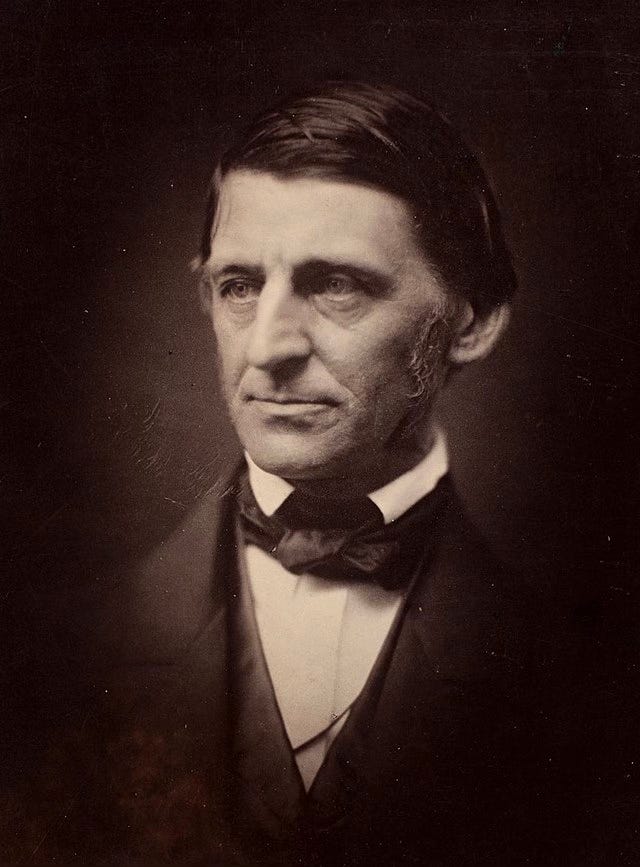Cardinal Dad,
You’ve touched on something so important. Delicate, yes, and difficult to say, but for that reason urgently in need of saying. Church orthodoxy is so precious that any mention of its limitations can reek of subversion. There really are all manner of innovators out there working to undermine tradition by soft degrees under cover of reform. This creates an obvious danger of heresy. But it creates a subtler danger of paralysis, too: in martial arts, you can defend so rigidly against an attack that you seize up and lose your agility. A brittle faith is just as vulnerable as a liquid one.
This is why I swear God prepares my reading lists. Over the weekend, before I read your essay, I picked up a Ralph Waldo Emerson collection and opened it basically at random to a piece called “Spiritual Laws.” It was such an infuriating mix of brilliance and madness that my brain almost short-circuited. Emerson, as you know, was a chief exponent of the Romantic movement in America. He and his fellow Transcendental philosophers favored the natural insights of the heart over the arid prescriptions of convention. And in the essay, that turns out to be a decent guide to individual life—but a recipe for utter disaster at a civilizational level.
Emerson starts out saying that “laws and letters and creeds and modes of living seem a travesty of truth.” We should simply let go and allow the sweet promptings of impulse to guide society, because “a higher law than that of our will regulates events.” And I’m sitting here thinking, Ralph, what the hell are you talking about? Have you ever seen a room full of third graders? They’re not sitting around in there writing sonnets from the naked genius of pure innocence. They need rules!
But then he gets to talking about how to find your life’s calling, and what was hogwash in the social domain becomes real insight in the personal realm. A man who follows the natural grain of his character and talents “is like a ship in a river,” writes Emerson; “he runs against obstructions on every side but one; on that side all obstruction is taken away, and he sweeps serenely over a deepening channel into an infinite sea.” It’s all like that, in paragraph after paragraph: private wisdom tumbling head over heels with corporate malarkey.
What I’m getting at is: modernity has loosened up our social rules but constrained the range of possible thought for the individual. And I think we may have gotten that backwards. In our public life we’re libertines, insofar as practically every indulgence is permitted. But in our personal lives we’re circumscribed into an exceedingly narrow band of materialist opinions and mores. Likewise in the church, we obsess over each other’s private deviance from the rules while whole denominations play fast and loose with doctrine. Maybe to achieve the revival you’re talking about we need to flip that on its head—maybe we need a firmer church ministering to a world of freer hearts.
Love,
Spencer






Can I ask, those of you who are so inclined, to pray for my friend's brother, Charlie, who has brain cancer? He is 32 and has two small children. He's ex British Army and most importantly a Dad and Husband. It doesn't seem right, so I'm sure enough of our prayers will bring him around and get him back on his feet again. Thank you everyone.
Emerson and the Romantics believed firmly that human beings were essentially good. That's hard to prove by any standard, but in the context of the individual spirit, it does make sense. How can it not be good to "follow your heart?" Well, as it turns out, the heart and the accompanying emotions are deceivers--and if you lead by your emotions, all will come to ruin. Practicality must, at some point, take hold. A flipping of the standards sounds like a good place to start.